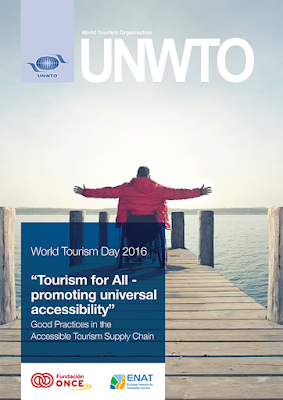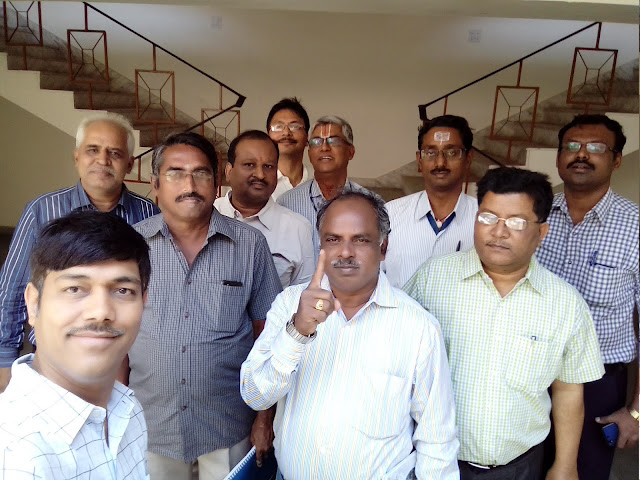Dear Colleagues,
To spread the word of both the importance and immense benefits universal accessibility has and can bring to society at large and to mark the theme of the World Tourism Day 2016 on 27th September 2016, the UNWTO (World Tourism Organisation) has released this brochure titled “Tourism for All - Promoting Universal Accessibility”.
It contains six short case studies highlighting good practices in the Accessible Tourism supply chain selected from all over the world and I am proud to share that the first case study is from India contributed by CABE Foundation, based on the wonderful work that civil society organisations & ASI did together. Following are the six case studies:
- Accessible Heritage Tourism: Best Practices of Universal Accessibility in India: Adapting sensitive cultural monuments to enable all visitors to enjoy cultural heritage sites;
- Exhibition of 3-D copies of Works of Art from the Prado Museum's Collection, Spain: Use of new technologies to make art accessible for visitors with visual impairments;
- Everyone Belongs Outside: Push to Open Nature & the Alberta Parks Inclusion Plan, Canada: Inclusion of often-excluded groups of visitors, such as persons with reduced mobility and learning difficulties, in outdoor environments;
- Barrier-free Tour Center, Japan: Application of accessibility-improvement measures and Universal Design to achieve access in urban planning and buildings through advocacy groups working with public and private sector;
- Lonely Planet Accessible Travel Guide: Availability of accessibility information; and
- T-GUIDE: Guiding Visitors with Learning Difficulties: Vocational training course on guiding visitors with intellectual impairments or learning difficulties at cultural heritage sites.
The examples brought out in this brochure provide a small sample of how world is proactively devising accessibility solutions to bring home the point that Tourism is for every one and should thus include each one of us irrespective of one's age, ability or other diversity.
The brochure is intended for the "new" audiences - both destinations and businesses to learn & develop an understanding of Accessible & Inclusive Tourism during the UNWTOs' World Tourism Day celebrations in September 27, 2016. Once the idea reaches the businesses & destination managers that making tourism accessible opens it to all and brings in the economics as well, there is no dearth of ideas, guidance, know-how on making accessible tourism as part of every tourism experience.
Year: 2016, Publisher: World Tourism Organization (UNWTO)
About World Tourism Day
Ever since its inception, World Tourism Day is celebrated on 27 September to foster awareness among the international community of the importance of tourism and its social, cultural, political and economic value. As the official day set aside in the United Nations Calendar the celebration seeks to highlight tourism's potential to contribute to reaching the Sustainable Development Goals (SDGs), addressing some of the most pressing challenges society is faced with today.
Tweet with hashtags #tourism4all #WTD2016 #CABEIndia #CABEFoundation #UNWTO











